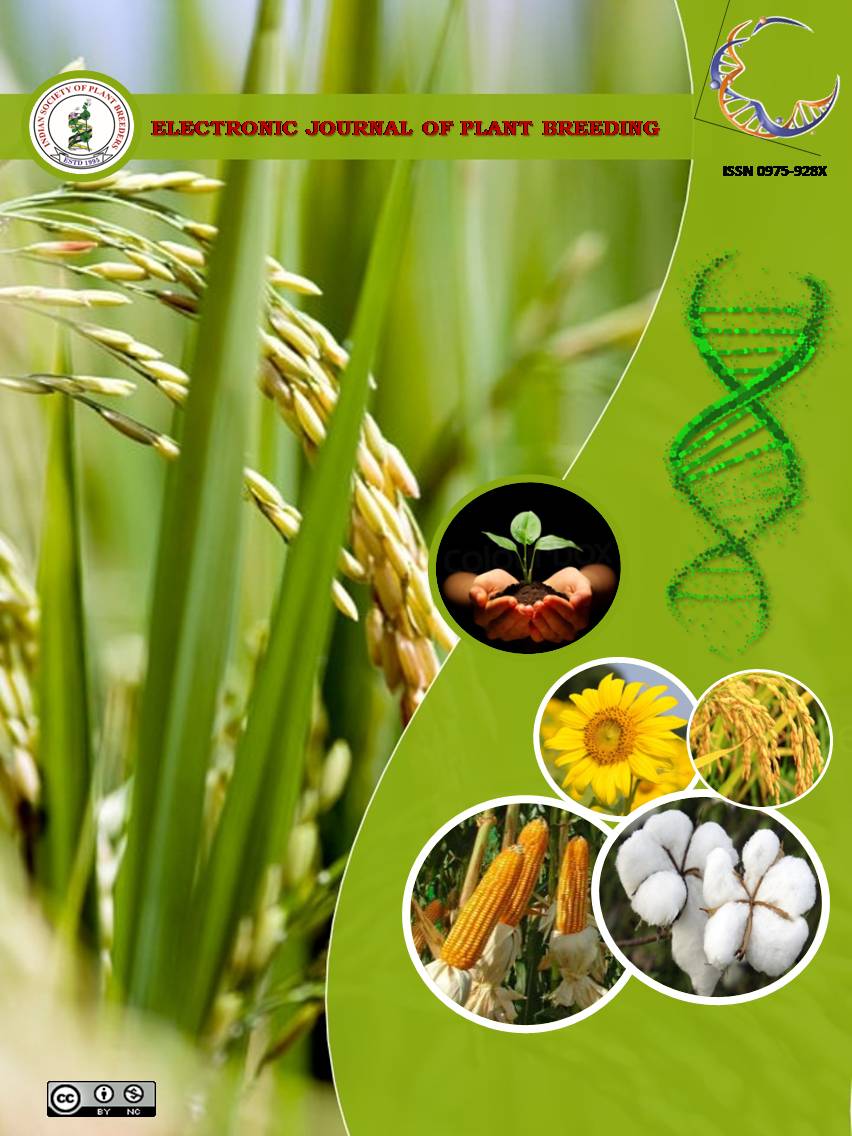Genetic variability studies for yield and yield components in sesame (Sesamum indicum L.)
Abstract
Sesame (Sesamum indicum L.) is one of the oldest oilseed crops and is widely cultivated in India and Worldwide. The present investigation was carried out to evaluate the sesame genotypes using 18 traits to elucidate the information on the amount of variability on yield and with yield attributing traits. Based on the variability parameters such as ANOVA (Analysis of variance), Phenotypic and Genotypic Coefficient of Variations (PCV, GCV) the selected yield contributing traits were number of capsules per plant, capsule length, number of seeds per capsule, 1000 seed weight, oil content and single plant yield. Heritability studies revealed that all the traits except capsule width and single plant yield showed high heritability, indicating heritability was mostly due to additive gene action. Genetic advance as per cent of mean was high for all the traits except plant height, capsule width and single plant yield. Based on the study, heritability was mostly due to additive gene action. Selection for highly hertitable and high genetic advance as per cent of mean traits may be effective for the improvement of sesame.

It is certified that:
- The corresponding author is fully responsible for any disputes arising due to the publication of his/her manuscript.
- The article has been seen by all the authors who are satisfied with its form and content.
- The sequence of names of authors in the by-line is as per their relative contribution to this experiment, giving due credit to all scientists who made notable contribution to it.
- All the authors fully understand that inclusion of any other co-authors or exclusion of any co-authors is not possible once the article has been submitted to the journal.
- The corresponding author takes full responsibility for this article.
- The address of the organization where the research was conducted is given.
- The article is exclusive for this journal, and the results reported here have not been sent (and will not be sent during its consideration by this journal) for publication in any other journal.
- Authors agree to abide by the objective comments of referees and do agree to modify the article into a short note as per the recommendation, for publication in the Electronic Journal of Plant Breeding.
- If published in Electronic Journal of Plant Breeding, the copyright of this article would vest with the Indian Society of Plant Breeders, who will have the right to enter into any agreement with any organization in India or abroad engaged in reprography, photocopying, storage and dissemination of information contained in it, and neither we nor our legal heirs will have any claims on royalty.


